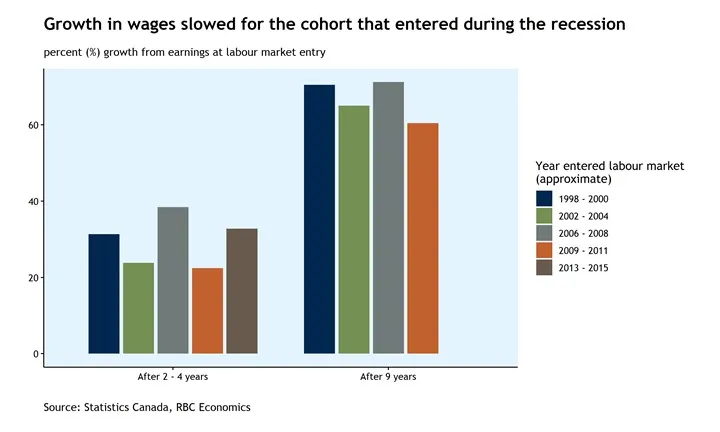
Retail Tourism: Trends and Insights
Introduction
Retail tourism accounted for 6% of Travel & Tourism’s GDP in 2019. The World Travel & Tourism Council (WTTC) has launched a report titled “Global Retail Tourism: Trends and Insights” which aims to revolutionize the way we perceive shopping tourism.
Collaborative Research
The report is a result of joint research conducted by WTTC and the Hospitality & Tourism Research Centre of The Hong Kong Polytechnic University, in collaboration with The Bicester Collection. The launch event took place at La Roca Village, part of The Bicester Collection, in Barcelona, Spain, coinciding with the Village’s 25th anniversary.
Significance of Retail Tourism
Retail tourism generated a substantial US$178 billion in 2019, contributing 6% to the value of the Travel & Tourism sector. In some destinations, this figure exceeded 15%. Despite its economic impact, retail tourism has been under-researched, resulting in a lack of critical data for strategic planning.
Insights and Emerging Trends
The WTTC report provides insights into shopping habits of travelers, including visits to out-of-town retail destinations, and highlights emerging trends such as sustainable retail. It emphasizes the untapped potential of retail tourism for destinations and businesses.
Recovery and Growth
The report reveals that retail tourism began recovering from the COVID-19 pandemic in most markets in 2021, with the Americas and Europe leading the way. It outpaced overall economies in pre-pandemic times, demonstrating its resilience and future growth prospects.
Role in Travel & Tourism Sector
Retail tourism plays a pivotal role in the recovery of the Travel & Tourism sector. In 2022, inbound tourism revenues surged by 82%. Shopping is no longer just a leisure activity; it shapes travel decisions, enhances destination appeal, boosts foreign exchange earnings, and supports local brands and products.
Emerging Themes
The report highlights the emerging theme of ‘retailtainment,’ which combines retail and entertainment to incentivize shopping and enhance the customer’s experience.
Stakeholder Adaptation
Julia Simpson, WTTC President & CEO, emphasizes the need for stakeholders in the Travel & Tourism sector to adapt to changing traveler preferences. Travelers seek authentic brands that capture the culture and uniqueness of their destination, as well as luxury brands in luxurious settings.
Collaborative Approach
Desirée Bollier, The Bicester Collection Chair and Global Chief Merchant, highlights the collaborative approach between retail, travel, and tourism that elevates the traveler’s journey while balancing sector growth with conscious actions. This approach involves destination integrity, technological embrace, public-private cooperation, empathy with the traveler’s point of view, and well-considered policies.
Sustainability
Professor Haiyan Song, Director of Hospitality and Tourism Research Center at The Hong Kong Polytechnic University, emphasizes the growing significance of sustainability in Travel & Tourism. The report provides insights into shoppers’ willingness to pay for sustainable products.
Spending Patterns and Preferences
The report offers valuable insights into the spending patterns and preferences of shopping tourists, highlighting the merging of experiential tourism with shopping to meet their demands. While high-street shops remain popular, out-of-town retail and online shopping are also growing in popularity.
Recommendations and Obstacles
The report provides recommendations for stakeholders in retail tourism on how to navigate emerging trends successfully. It also acknowledges obstacles such as labor laws and the impact of tax-free shopping policies that need to be addressed for the continued growth and sustainability of the sector.
Conclusion
Retail tourism has significant potential for economic growth and sustainability. It is essential for stakeholders in the Travel & Tourism sector to adapt to changing traveler preferences and collaborate to enhance the overall experience. By embracing sustainability and understanding shoppers’ demands, retail tourism can thrive and contribute to the achievement of the Sustainable Development Goals (SDGs).
For More Information
For more information and to access the Retail Tourism report, please visit the WTTC Research Hub website or email Press.Office@wttc.org.
Download Press Release
SDGs, Targets, and Indicators
-
SDG 8: Decent Work and Economic Growth
- Target 8.9: By 2030, devise and implement policies to promote sustainable tourism that creates jobs and promotes local culture and products.
- Indicator 8.9.1: Tourism direct GDP as a proportion of total GDP and in growth rate.
-
SDG 12: Responsible Consumption and Production
- Target 12.8: By 2030, ensure that people everywhere have the relevant information and awareness for sustainable development and lifestyles in harmony with nature.
- Indicator 12.8.1: Extent to which (i) global citizenship education and (ii) education for sustainable development (including climate change education) are mainstreamed in (a) national education policies; (b) curricula; (c) teacher education; and (d) student assessment.
-
SDG 17: Partnerships for the Goals
- Target 17.16: Enhance the Global Partnership for Sustainable Development, complemented by multi-stakeholder partnerships that mobilize and share knowledge, expertise, technology, and financial resources, to support the achievement of the Sustainable Development Goals in all countries, in particular developing countries.
- Indicator 17.16.1: Number of countries reporting progress in multi-stakeholder development effectiveness monitoring frameworks that support the achievement of the Sustainable Development Goals.
SDGs, Targets, and Indicators
| SDGs | Targets | Indicators |
|---|---|---|
| SDG 8: Decent Work and Economic Growth | Target 8.9: By 2030, devise and implement policies to promote sustainable tourism that creates jobs and promotes local culture and products. | Indicator 8.9.1: Tourism direct GDP as a proportion of total GDP and in growth rate. |
| SDG 12: Responsible Consumption and Production | Target 12.8: By 2030, ensure that people everywhere have the relevant information and awareness for sustainable development and lifestyles in harmony with nature. | Indicator 12.8.1: Extent to which (i) global citizenship education and (ii) education for sustainable development (including climate change education) are mainstreamed in (a) national education policies; (b) curricula; (c) teacher education; and (d) student assessment. |
| SDG 17: Partnerships for the Goals | Target 17.16: Enhance the Global Partnership for Sustainable Development, complemented by multi-stakeholder partnerships that mobilize and share knowledge, expertise, technology, and financial resources, to support the achievement of the Sustainable Development Goals in all countries, in particular developing countries. | Indicator 17.16.1: Number of countries reporting progress in multi-stakeholder development effectiveness monitoring frameworks that support the achievement of the Sustainable Development Goals. |
Behold! This splendid article springs forth from the wellspring of knowledge, shaped by a wondrous proprietary AI technology that delved into a vast ocean of data, illuminating the path towards the Sustainable Development Goals. Remember that all rights are reserved by SDG Investors LLC, empowering us to champion progress together.
Source: wttc.org

Join us, as fellow seekers of change, on a transformative journey at https://sdgtalks.ai/welcome, where you can become a member and actively contribute to shaping a brighter future.






